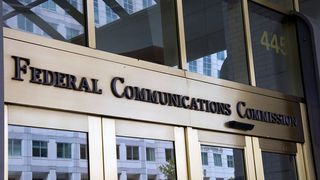Cable Ops Diverge Over Diversity

Comcast-NBCU, the nation’s largest cable operator, has asked the FCC to scrap its proposed changes to programming contracts as unnecessary in a vibrantly competitive marketplace.
However, smaller cable operators represented by the American Cable Association (ACA) are in the other corner, arguing that such changes are necessary, but saying an even more important move would be to do something about bundled carriage deals.
A politically divided FCC last September voted to propose prohibiting the unconditional most favored nation (MFN) and “unreasonable” alternative delivery method (ADM) clauses that independent programmers and smaller distributors have said hinder access to diverse programming.
In comments filed on that notice of proposed rulemaking, adopted under a majority Democratic FCC over Republican dissent, Comcast told the now-Republican majority that the answer to whether the FCC can and should impose such restrictions is a resounding “no.”
It says the FCC should, instead, recognize the marketplace as “competitive and diverse” at all levels, decline to adopt the proposed rules and terminate this proceeding.
The FCC NPRM followed an inquiry into program diversity prompted by Commissioner Mignon Clyburn, who had called for a notice on inquiry (NOI) regarding barriers to diverse programming at the time of the FCC’s approval of the AT&T/DirecTV deal.
In its filing, Comcast dismissed the NOI as having resulted in the “usual mixture of grievances and unsupported assertions,” while at the same time producing “overwhelming” evidence that the video marketplace is “vibrant and competitive.”
Broadcasting & Cable Newsletter
The smarter way to stay on top of broadcasting and cable industry. Sign up below
“Programming of every genre, niche, source and viewpoint continues to increase by leaps and bounds, new online platforms are launching one after another (some that look a lot like traditional distributors or networks, and others that appear to be new things altogether), and consumers are enjoying the bounty of a video programming marketplace more robust, dynamic and diverse than it has ever been,” came their statement.
In the face of the bounty, suggests Comcast, the proposed regulations are entirely unwarranted, as is its inquiry into whether it should regulate wholesale bundling practices.
Even if the FCC wanted to impose the restrictions on contracts, it couldn’t, argues Comcast, because program carriage rules are not a general grant of authority, but instead are limited to specific conduct identified by Congress. The FCC suggests it can restrict the contracts under the specific nondiscrimination provision, but Comcast says no to that one as well.
Illustrating the divide on the issue between the larger and smaller multichannel video programming distributors, the American Cable Association had plenty of grievances.
It told the FCC that while the MFNs and ADMs are bad enough, a bigger problem is that smaller distributors often don’t get to strike deals under any terms with diverse programmers because their time, money and bandwidth are tied up in bundles forced on them by programmers with must-have channels.
“It is bundling that represents by far the greatest threat to the viability of independent programming, and therefore it is bundling that must be the focus of the Commission’s efforts,” ACA said.
As for MFNs and ADMs, ACA says the FCC went too far in proposing eliminating all unconditional MFN edicts between distributors and independent programmers. Rather, it should only apply that to large MVPDs, rather than the smaller ones it represents, saying there is no evidence that smaller MVPDs have the muscle to insist on such contracts or that they have any impact on access to independent programming.
ACA got support from Public Knowledge, which argued the Commission should take a case-by-case look at the contracts and step in where they are anticompetitive.
And while ACA argued that the FCC should look at bundling by broadcasters in retrans deals, broadcasters disagreed there.
“Bundling helps broadcasters achieve economies of scale and cost savings and also promotes the amount, quality and diversity of programming available to consumers. Thus, bundling aligns with this proceeding’s goal to foster greater consumer choice and enhance diversity,” the National Association of Broadcasters told the commission.
Contributing editor John Eggerton has been an editor and/or writer on media regulation, legislation and policy for over four decades, including covering the FCC, FTC, Congress, the major media trade associations, and the federal courts. In addition to Multichannel News and Broadcasting + Cable, his work has appeared in Radio World, TV Technology, TV Fax, This Week in Consumer Electronics, Variety and the Encyclopedia Britannica.

